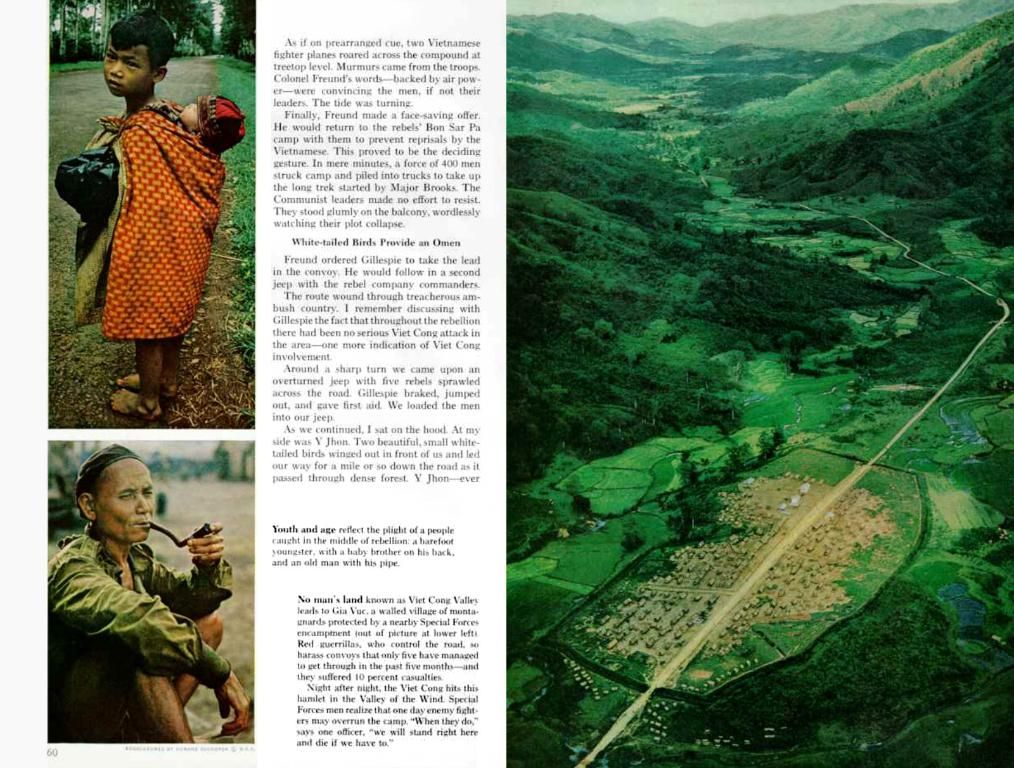Navigating the Storm: Fortifying Academic Freedom Amid Global Political Turbulence
- *
Worldwide Academic Freedom Under Increasing Threat According to the Chief Institute - Scientific Institution Leader Warns of International Threats to Academic Liberty
The director of the Leibniz Institute for Baltic Sea Research Warnemuende (IOW), marine physicist Oliver Zielinski, observes that science in democratic nations faces a pressing challenge to safeguard its knowledge in the face of conflicts and geopolitical tensions. "Academic freedom is under global pressure," Zielinski warns, a sentiment echoed by members of the Federal and State Science Council to the German Press Agency (dpa). The question of sharing data with whom and under what circumstances is becoming increasingly essential.
Take, for instance, marine, coastal, and polar research, where cooperation with Russia has come to a halt following the invasion of Ukraine. Unlike nations like China or Iran, this is not about risk minimization (de-risking) but a complete break (de-coupling) in relations. "Given the geopolitical landscape and Russia's actions, there can be no cooperation. There's currently no foundation for it," states Zielinski. The impact on Baltic Sea research, however, is not significant.
Still, dealing with autocratic states proves beneficial. "Environmental issues like climate change, pollution, and biodiversity loss are borderless. It's vital to involve these nations and collaborate with them," says Zielinski. Justifying selective cooperations and knowledge transfers is crucial, though. "I remain a believer in science diplomacy, bridges can and must be built, but they're not as wide or as open as before, with checkpoints at certain places."
The IOW director also pointed to an example of scientific cooperation with China. Collaboration on a project investigating the pollution of Chinese coastal waters by megacities has been permitted, a testament to the doors that should be utilized.
The Science Council - the highest advisory body on science matters for the federal government and the governments of the states - released a position paper titled "Science and Security in Times of Global Political Upheaval" in May. Key recommendations include establishing a National Platform for Knowledge Security as soon as possible. This platform, serving as a contact point for scientific actors, would offer swift and bureaucracy-free support with comprehensive information to help assess risks related to knowledge dissemination.
- Warnemuende
- Director
- Ukraine
- Russia
- China
- Science Council
- Rostock
- German Press Agency
- Iran
Trends and Strategies for Knowledge Security
- Legislative Frameworks
- Dutch Knowledge Security Screening Bill: In the Netherlands, legislation mandates screenings for researchers in sensitive fields to prevent sensitive knowledge from going astray, potentially affecting collaborations involving countries like China and Russia. Diplomatic implications may follow.
- U.S. Initiatives: The U.S. is working to restrict funding to universities with associations with "Chinese entities of concern," emphasizing caution in some international collaborations.
- Data Protection
- International Initiatives: The InterAcademy Partnership (IAP) and the International Science Council (ISC) are advocating for safeguarding scientific data, addressing heightened data risks during crises.
- System Adaptation
- Germany: Germany's science system is being urged to enhance its security expertise to counter threats like cyberattacks and knowledge outflows, adapting to a dramatically changed security environment.
Cooperative Hurdles
- Political Tensions: Stricter security measures can create diplomatic friction, especially with nations like China and Russia.
- Security vs. Openness: The balance lies between preserving open scientific cooperation and ensuring knowledge security, without discouraging international talent or hindering research progress.
Looking Forward
- Global Collaboration: Maintaining international scientific cooperation is vital for research advancement. To achieve this, focus on developing robust security protocols that protect sensitive information while fostering global partnerships.
- Data Resilience: Ensuring the consistency and preservation of scientific data during crises is imperative, requiring comprehensive data storage and safeguarding strategies.
- In light of the global political turbulence, the employment policy for scientists and researchers in EC countries should prioritize data security and cooperative strategies, as demonstrated by the Science Council's position paper on "Science and Security in Times of Global Political Upheaval."
- Encourage multilateral cooperation with nations like China and Russia, even in times of political stress, as scientist Oliver Zielinski has suggested, recognizing that environmental issues are borderless and requiring global collaboration.
- The finance and technology sectors can play a significant role in supporting and funding scientific research, particularly in areas like health and wellness, medical-conditions, and education-and-self-development, to ensure academic freedom and research progress.
- In the wake of political tensions and geopolitical challenges, it's essential to maintain a balance between preserving open scientific cooperation and ensuring knowledge security, as Zielinski emphasizes, without discouraging international talent or hindering research progress.





